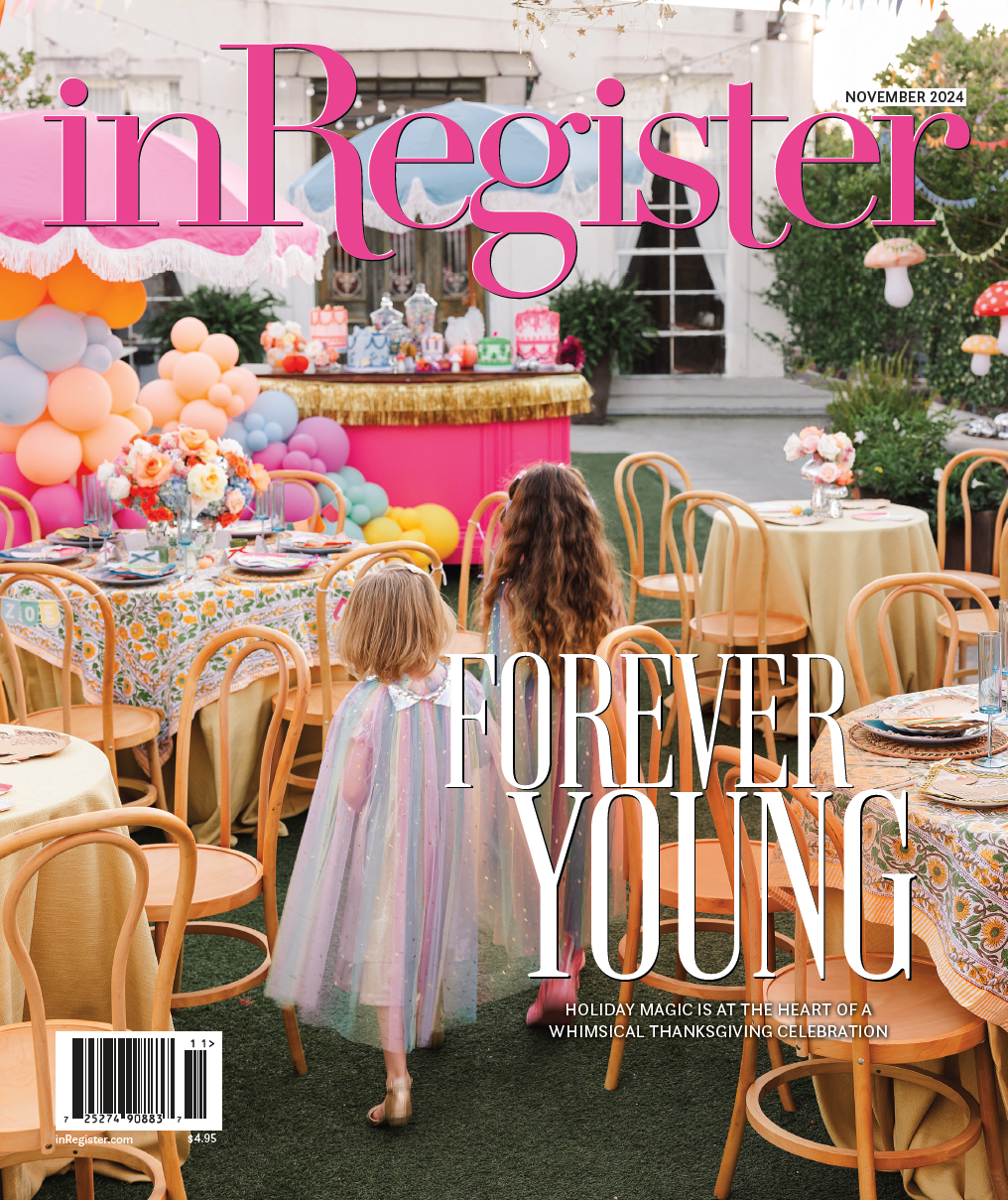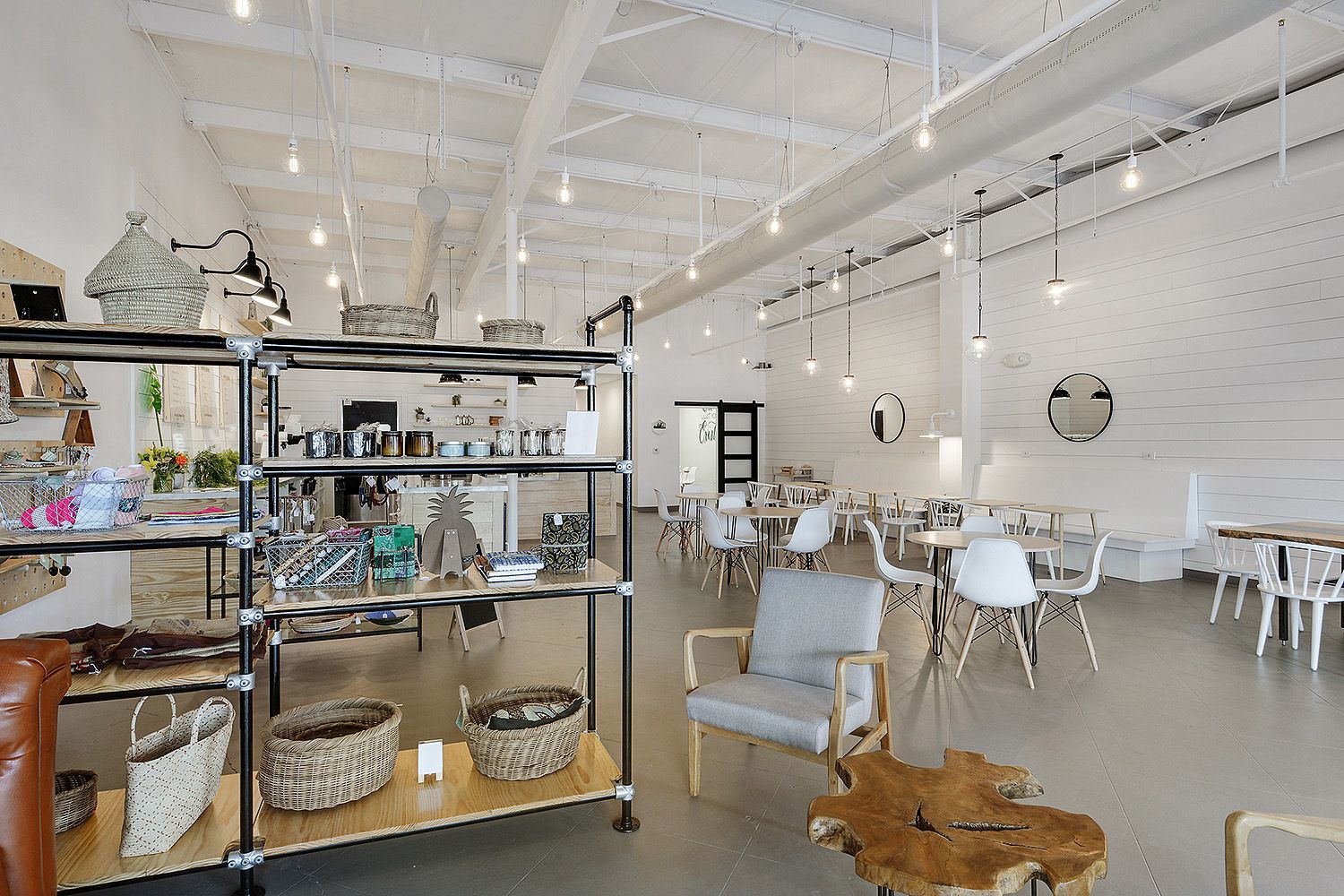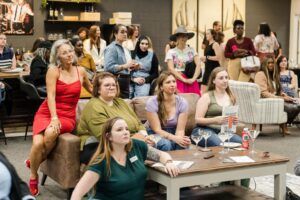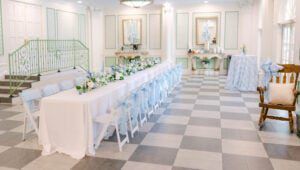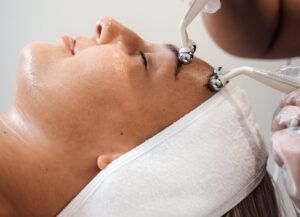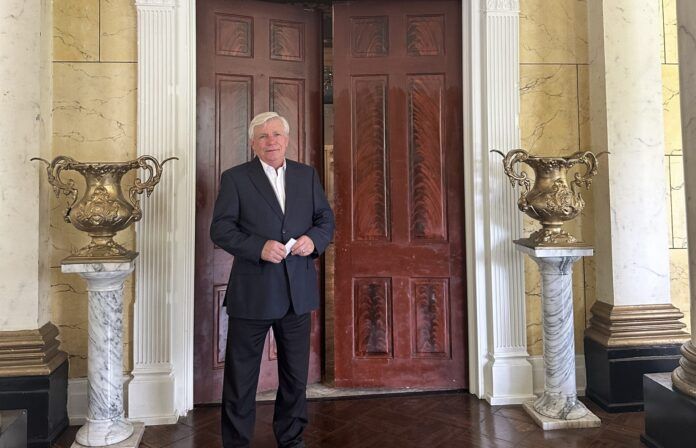Caffeine, community, and change: Light House Coffee’s grand opening this Friday
For me on Monday morning, caffeine is a must. A necessity. My lifeblood. So I was more than happy to start my week off by visiting Baton Rouge’s newest coffee shop on Lee Drive, only a short mile from my home near campus. Light House Coffee celebrated a successful soft opening on Saturday, March 31, and will host its grand opening this Friday, April 6.
Even without announcing their opening, the fresh, mod space of the shop had been filled with supporters and curious patrons for the past two days, said owner Amber Elworth. “We met our daily goal from our business-plan projections just from word of mouth,” she said. “So we were pretty thrilled about that.”
All set with a my cup of joe and a croissant, I sat with her in a back room in the corner of the shop. On the wall was a quote: “Create What You Wish Existed.” Elworth told me that the original idea for Light House came from her and her husband’s longtime desire for a specialty coffee shop in Baton Rouge. But of course this place is more than just a coffee shop: “As much as we love coffee, we probably wouldn’t have opened Light House if we didn’t have the cause to spur it.”
Through the coffee shop, Elworth hopes to open doors to a population that has been close to her heart for a while: the refugee community here in Baton Rouge. It all started, she said, when she was volunteering to teach English at her church years ago. At the time, she was pretty unfamiliar with the idea of what a refugee even was. Then she met Layla, an older woman who had come to the United States from Iraq. “She had so many barriers to functioning here in the U.S. even beyond language,”said Elworth. She recounted to me a specific instance in which Layla had to find a ride to the doctor, received a prescription and didn’t understand what it was, didn’t realize she needed to take it to another place or that she would have to drop it off and then return later. “All these little cultural life things were enormous challenges to her,” said Elworth. “I spent hours and hours with her, and learned so much about the process and the struggles of being a refugee in America.”
Elworth recalled seeing things on the news about ISIS and Syria and becoming overwhelmed with the realization: “There are millions of Laylas out there right now.”
She then took a job at Catholic Charities, the center for refugee and immigration services here in Baton Rouge. Teaching English, she was able to interact with every single refugee who came through the process in Baton Rouge for a year for 18 hours of courses each. “I learned so much about their stories and their struggles with finding a job here in America.”
As part of the mission of Light House, Elworth will provide dignified work opportunities for members of this community. The key to this, she explained, is having the patience and the ability to meet people where they are and walk with them. “It’s about seeing where people aren’t connecting the dots,” she said. “Doing more than saying in a quick American accent, ‘Do this, this, this and this,’ and then getting frustrated when people aren’t able to perform. Taking the time to figure out why they aren’t understanding something, and how to adjust the instructions so that they do.”
Elworth anticipates that the process will not be quick. “I don’t think our employees will have their lives turned around in a month.” But she hopes that over time, the refugee employees will become equipped enough to pursue even better opportunities on their own. “The whole vision is self-sufficiency, empowering people to help themselves.”
Currently, Light House has three refugee employees from Congo, Iraq and Sudan. In the next few months, Elworth hopes to grow the business so she can hire more and develop classes and programs to greater empower these individuals and more.
She also hopes to educate the public about the refugee community through the welcoming and communal environment of her coffee shop. “There is this negative connotation for the word refugee,” she said. “People don’t realize that there is no such thing as an illegal refugee. These people go through an intense, often decades-long process to get here. Not because they wanted to leave their homes, but because they had to. And they are legal to work from the minute they get off the plane in the U.S.”
Elworth encourages the community to get involved in programs like Catholic Charities through teaching classes, helping with transportation, or simply sitting down to talk with refugees, helping them learn the language and the culture through genuine interaction. Perhaps over a latte or cortado.
For more information about Light House Coffee, visit the website here. To learn about ways to get involved with Catholic Charities, click here. And to see some of the merchandise to be sold at Light House, and support other efforts to empower the refugee community, check out Hands Producing Hope and inRegister‘s story on the organization from the March issue here.

